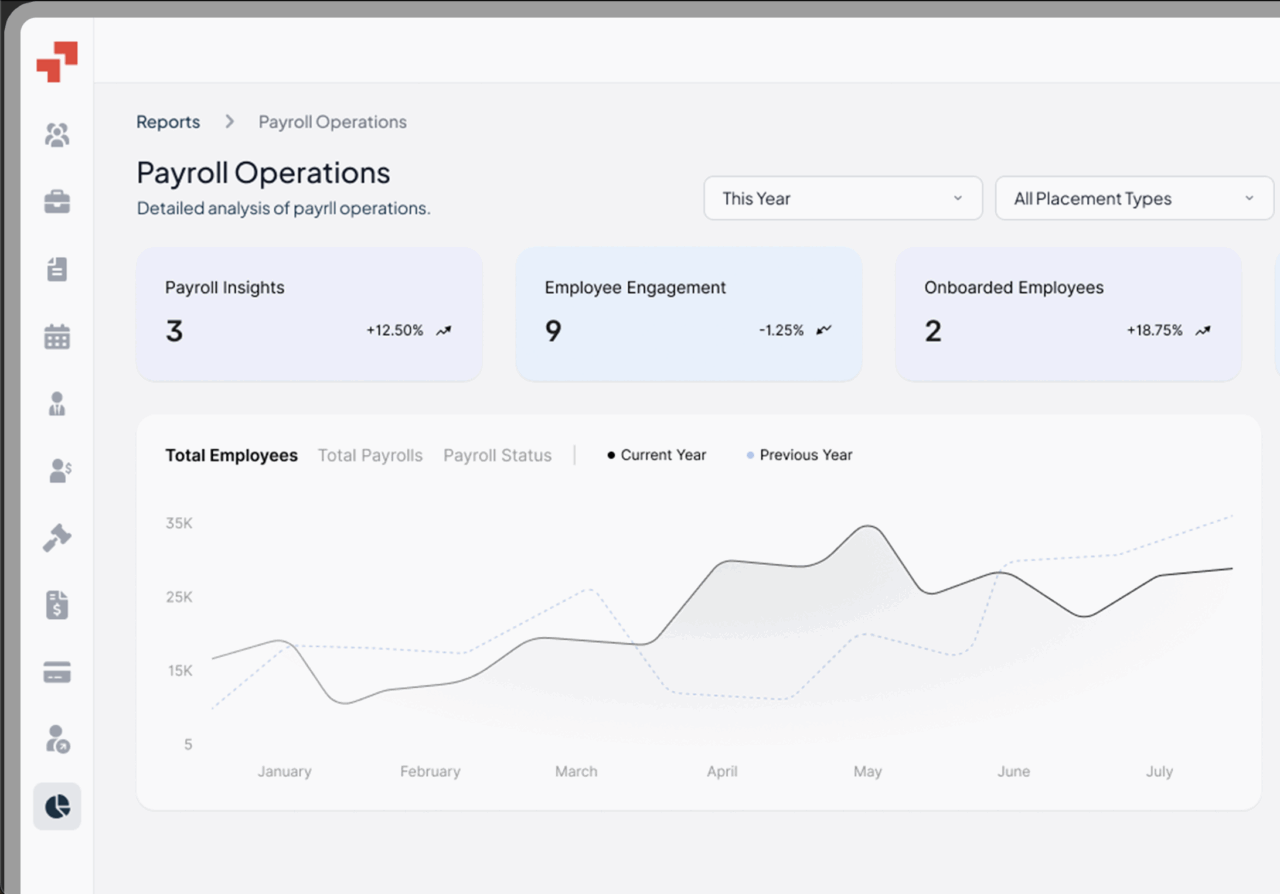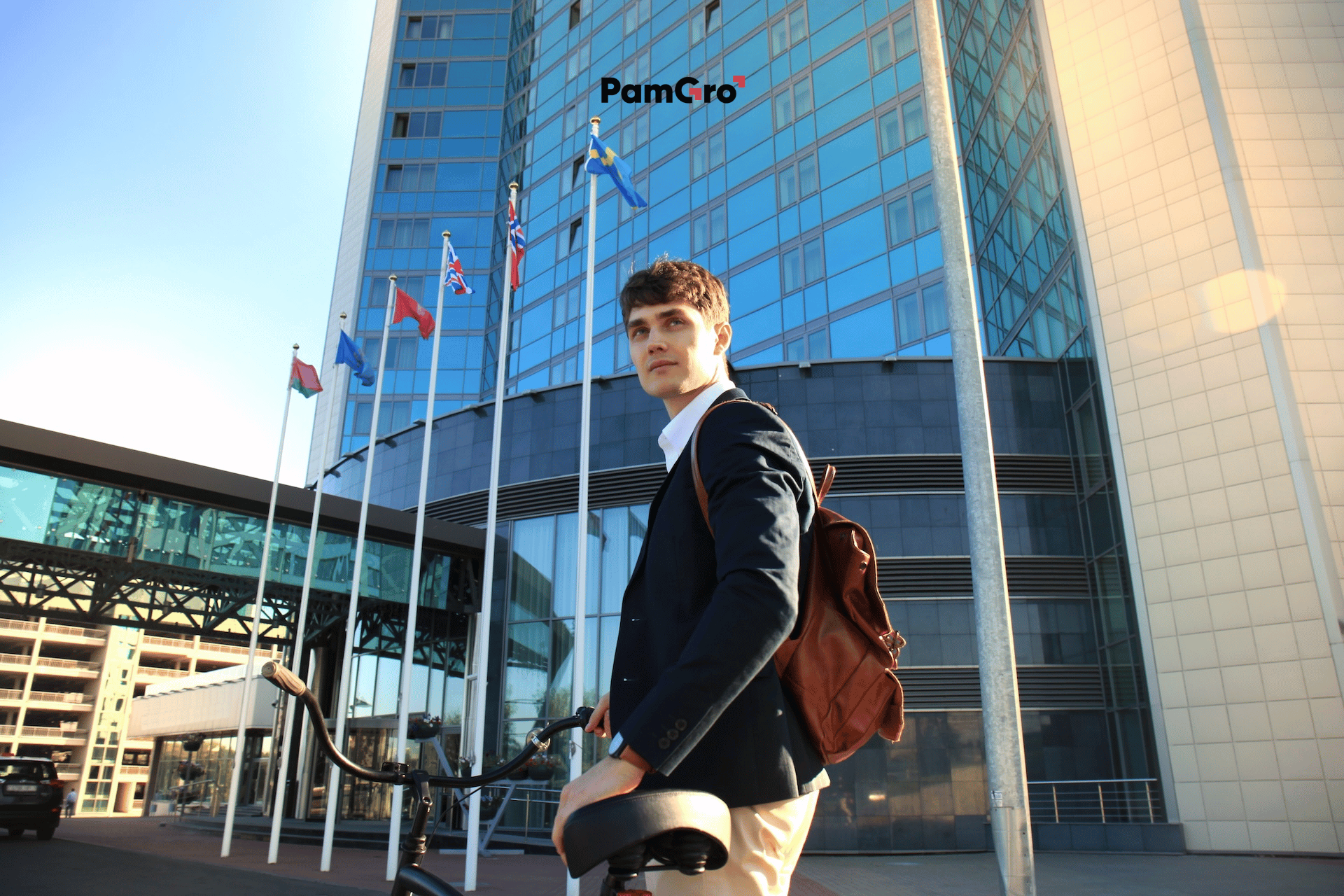TABLE OF CONTENTS
- What is a Work Permit in the Netherlands?
- Who Needs a Work Visa in the Netherlands?
- Who Is Exempt from a Dutch Work Visa?
- Eligibility Requirements for a Work Visa in the Netherlands
- Application Process for Netherlands Work Visas
- Process for Employee Work Visa Sponsorship in the Netherlands
- Why use an employer of record to hire in the Netherlands?
The Netherlands, known for its vibrant economy and as a global hub for technology and innovation, attracts both businesses and talent worldwide. If you’re an employer looking to hire international talent or an expat aiming to work in this dynamic country, understanding the work permit Netherlands process is your first critical step.
Whether it’s ensuring compliance with Dutch immigration laws or even you need navigating the complexities of securing a residence permit, staying informed about the latest regulations is essential. Employers must secure proper authorization before onboarding non-citizens, as failing to comply with labor and immigration laws can result in hefty fines, legal penalties, and reputational risks.
This guide offers a deep dive into Dutch work permit requirements, outlining who needs one, the application process, and tips for both individuals and employers who have to ensure a smooth transition.
Let’s demystify the process together so you can focus on what matters—building your career or business in this exciting global destination.
What is a Work Permit in the Netherlands?
A Netherlands work Visa, or permit, is an essential document that allows non-EU/EEA citizens to work legally in the country. This permit is usually requested by the prospective employer and is issued by the Dutch Immigration and Naturalization Service (IND) or the Employee Insurance Agency (UWV), depending on the type of permit.
Key Employer Responsibilities
Employers play a crucial role in securing work permits for foreign employees.
- Sponsorship Obligation: The work permit is valid only under the company sponsoring it. If the employee leaves, the employer must inform Dutch Immigration Authorities.
- Recruitment within the EU: Employers must prioritize hiring within the EU or Switzerland before seeking talent from outside the region.
Securing the right work permit for the netherlands is not only a legal requirement but also protects businesses from penalties, including fines or potential bans from hiring foreign talent.
Who Needs a Work Visa in the Netherlands?
The need for a work visa in the Netherlands depends largely on your nationality and the nature of your employment. While some groups can work freely without a visa, others must secure specific permits to work legally. Here’s an overview:
- Non-EU/EEA NationalsCitizens from outside the EU, EEA, and Switzerland must have a valid Dutch work permit before starting any employment.Employers are required to ensure compliance by applying for the appropriate visa and verifying their workers’ eligibility.
- Short-Term WorkersNon-EU/EEA nationals attending business meetings or undertaking temporary assignments in the Netherlands may require short-term permits.
- Highly Skilled Migrants and Blue Card HoldersProfessionals with specific expertise contributing to the Dutch economy need a “Highly Skilled Migrant” or EU Blue Card.Both categories have tailored permits and exemptions but require meeting salary thresholds and other criteria.
- Interns, Researchers, and Cultural Exchange ParticipantsThese individuals often need tailored work permits based on their activities and length of stay.
Who Is Exempt from a Dutch Work Visa?
- EU/EEA Citizens and Swiss Nationals
- Individuals from EU countries,Iceland, Liechtenstein, Norway, and Switzerland do not need a Dutch work visa. They can work freely with just a valid passport or identity card. For stays exceeding three months, they may need a residence permit.
- Special Residency Holders
- Individuals with a residence permit that includes the note “arbeid is vrij toegestaan” (“work is freely allowed”).
- Self-employed individuals holding a residence permit for self-employment.
- Residents with permits for start-up founders.
- Other Exceptions:
- Short-term tasks such as business meetings might not require a formal work visa but may still need documentation or specific entry permits.
- Some countries, such as the USA and Japan, have bilateral agreements allowing easier access for short stays.
Types of Dutch Work Visas and Permits
When considering employment in the Netherlands, it’s essential to understand the available Netherlands work visa options. Employers must select the appropriate permit based on the employee’s role, contract duration, and nationality.
- Tewerkstellingsvergunning (TWV)A short-term work permit is required for employment lasting less than 90 days.Issued by the UWV (Employee Insurance Agency).Valid for one year with the possibility of renewal.
- Combined Residence and Work Permit (GVVA)Also called the single permit, it combines residence and work authorization for contracts exceeding 90 days. It includes a document specifying the employer’s details and working conditions. Employers must apply to the IND and UWV.
- Highly Skilled Migrant PermitTailored for professionals in fields like IT, engineering, and research. Requires employers to be IND-recognized sponsors.
- Salary thresholds (2024 figures):
- § €5,331 (30 years and older).
- § €3,909 (under 30).
- § €2,801 for graduates in their “Orientation Year.”
Exemptions: Scientific researchers and medical trainees only need to meet Dutch minimum wage requirements.
- Salary thresholds (2024 figures):
- EU Blue CardAimed at highly educated professionals from non-EU countries.Requires meeting specific education and salary thresholds (€4,265/month in 2024).Combines residence and work authorization, facilitating intra-EU mobility.
- Entrepreneur VisaDesigned for individuals starting businesses in the Netherlands.Applicants must meet innovation, investment, and business feasibility criteria.
- Seasonal and Short-Stay Work PermitsFor temporary positions in industries like agriculture and hospitality.Typically, this applies to non-EU citizens seeking seasonal employment.
Employee Cost Calculator
Eligibility Requirements for a Work Visa in the Netherlands
To secure a work permit in the Netherlands, both employers and employees must meet specific eligibility criteria. These requirements aim to ensure that hiring foreign nationals supports the local labor market and complies with Dutch labor laws. Here’s a detailed breakdown:
General Requirements
- Relevance of Skills and EducationApplicants must possess qualifications or professional experience aligned with the job role. For highly skilled migrants, specialized expertise and higher education credentials are often required.
- Financial Self-SufficiencyProof of financial capability to support oneself during their stay in the Netherlands is mandatory. This includes income meeting or exceeding the minimum wage requirements.
- Legal and Clean RecordApplicants must submit a valid passport and a criminal record check, demonstrating no prior legal issues. Residence permits, if previously issued, should not have been revoked or refused.
Employer Obligations
- Labor Market TestEmployers must prove there are no suitable candidates within the Netherlands, EU, EEA, or Switzerland to fill the position.Evidence of efforts, such as job advertisements and collaboration with recruitment agencies, must be provided.
- Compliance with Dutch LawsEmployment contracts must adhere to Dutch labor standards, including minimum wage thresholds and favorable working conditions.Employers must be registered with the Immigration and Naturalization Service (IND) as a recognized sponsor.
- Job SuitabilityThe proposed employment must not conflict with Dutch national interests. Jobs deemed harmful to the country’s interests may be rejected.
Application Process for Netherlands Work Visas
Applying for a Netherlands work visa involves distinct processes based on the duration and type of employment. Employers and employees must navigate these steps carefully to comply with Dutch immigration regulations.
- Short-Stay Work Permit (TWV)For employment up to 90 days, a TWV work permit is required. Only the employer can initiate this process. Here’s how it works:
- Employer ResponsibilityEmployers must apply for the TWV via the Dutch Employee Insurance Agency (UWV). Employees cannot apply independently.
- RequirementsThe employee must already hold a short-stay visa valid for up to 90 days. Proof of sufficient income and a valid employment contract are mandatory.
- TimelineProcessing typically takes up to five weeks.
- Long-Stay Work and Residence Permit (GVVA)For employment exceeding 90 days, non-EU/EEA/Swiss citizens require a GVVA (combined residence and work permit). Either the employer or the employee can apply through the Immigration and Naturalisation Service (IND), though it is recommended that the employer handles the process.
- Required Documents
- Valid passport
- Employment contract
- Proof of financial sufficiency
- Clean criminal record
- Two passport-sized photos
- Health insurance proof
- Tuberculosis test results (if applicable)
- MVV entry visa application (if applicable)
- Translated and notarized qualifications or CV
- Employer Obligations
- The IND must recognize the employer as a sponsor.
- Applications must comply with Dutch employment laws, including offering a salary above minimum wage.
- Timeline and Fees
- The process can take up to 90 days.
- Application fees range from €76 to €338, depending on the permit type.
- IND Notification
- Once approved, the IND informs the employer, who coordinates the next steps for the employee to collect their permit.
- Special Application ConsiderationsSome individuals may qualify for accelerated procedures, including:
- Senior management professionals
- Specialists and top-tier artists
- Employees visiting from non-Dutch branches to upskill
Customer Success Story
See how a PEB company simplified global hiring and acquired talent across borders efficiently with PamGro
Process for Employee Work Visa Sponsorship in the Netherlands
Sponsoring employees for work visas in the Netherlands involves a structured process where the employer plays a pivotal role in ensuring compliance with Dutch immigration laws. Here’s a step-by-step guide to the sponsorship process:
1. Employer Recognition as a Sponsor
To hire international employees, an employer must be recognized as a sponsor by the Immigration and Naturalisation Service (IND). This is mandatory for organizations employing highly skilled migrants, European Blue Card holders, or individuals in specific labor categories such as seasonal work or intra-company transfers.
Requirements for Recognition:
- Financial Stability: Proof of the company’s solvency and financial health.
- Compliance History: No prior violations of Dutch immigration laws.
- Registration: The organization must be registered with the Dutch Chamber of Commerce (KvK).
2. Application for a Work Permit
Once recognized as a sponsor, the employer applies for the appropriate work permit based on the employee’s role and duration of stay. This can include:
- GVVA: For long-term employment (90+ days).
- TWV: For short-term employment (less than 90 days).
- Highly Skilled Migrant Permit: For specialized roles.
Employers are responsible for providing:
- A valid employment contract.
- Evidence of compliance with salary thresholds.
- Details about the job role and its necessity in the company.
3. Compliance with Labor Market Criteria
The employer must demonstrate that the role could not be filled by local or EU/EEA candidates. This includes advertising the job locally and submitting proof of recruitment efforts to the Dutch Employee Insurance Agency (UWV).
4. Submission of Documents
Both employer and employee need to submit key documents:
- Employer: Proof of IND recognition, business registration, and financial stability.
- Employee: Valid passport, criminal record clearance, and educational qualifications.
All documents must be translated into Dutch, English, French, or German, and notarized where necessary.
5. IND Decision
The IND evaluates the application and may consult the UWV in cases requiring additional labor market assessment. Decisions typically take up to 90 days.
6. Notification and Visa Issuance
If approved, the IND notifies the employer. The employee can then collect their residence and work permit, or in some cases, their entry visa (MVV) for travel to the Netherlands.
Payroll Solutions Unrivalled since 15 Years

Why use an employer of record to hire in the Netherlands?
The process of obtaining a Dutch work visa or work permit can be daunting. With various requirements, including documentation, approval processes, and legal considerations, the process is often time-consuming. Failing to comply with local regulations can lead to serious financial penalties and operational delays.
However, working with a trusted partner like PamGro can significantly ease the process. PamGro’s team of mobility experts specializes in assisting businesses with all aspects of the employee relocation process, including work permits Netherlands, visas, and immigration compliance.
With PamGro, you will have access to a streamlined, hassle-free solution for international hiring and relocation. Our EOR services help you focus on expanding your business while we handle the intricate details of employee relocation and legal compliance.
Related Newsletter Insight:
Stay updated with the latest global hiring and compliance changes.
Hire the Best Talent, Anywhere


Mukul Dixit is a Growth Marketing Associate with 7+ years of experience creating impactful content in Innovative Tech, SaaS, and HR. A curious explorer at heart, he’s always on the lookout for new cultures to experience, fresh music to vibe, and innovative business ideas to dive. Passionate about entrepreneurship and digital marketing, Mukul brings a creative edge to everything he does.






